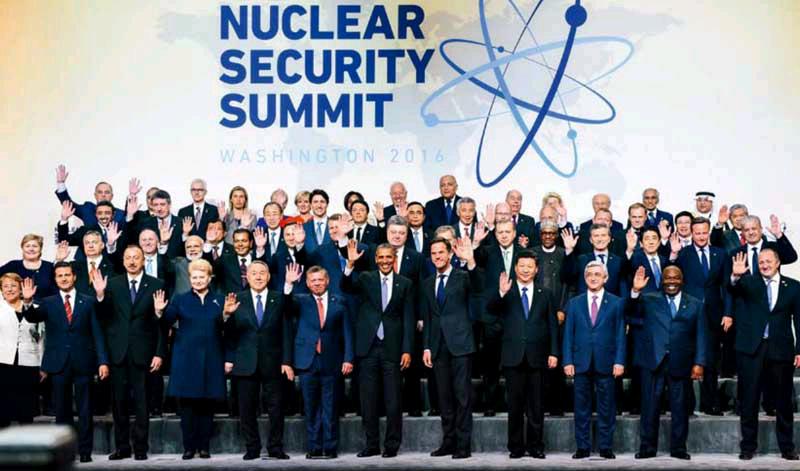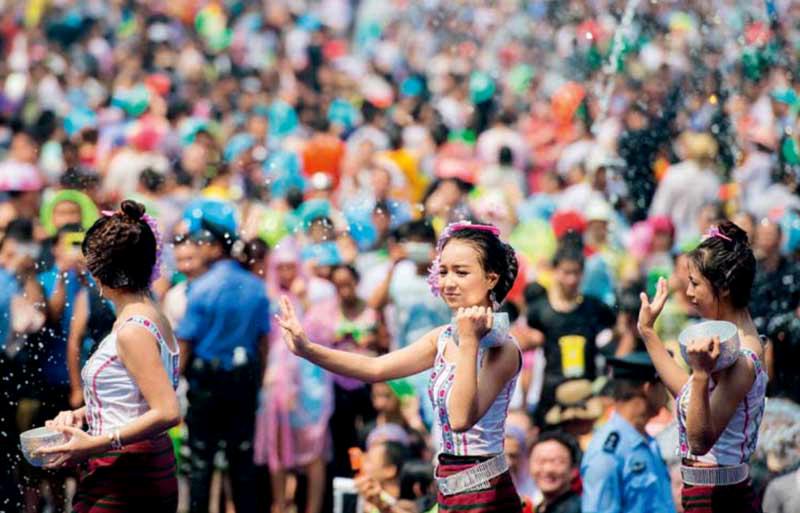News
2016-05-30
Nuclear Security Summit
April 1, Washington DC: A group photo of Chinese President Xi Jinping, U.S. President Barack Obama and other world leaders attending the fourth Nuclear Security Summit (NSS). President Xi Jinpings arrival in Washington for the fourth NSS testified to Chinas firm commitment and constructive approach to safeguarding radioactive materials around the world. Xi, who also attended the third NSS at The Hague in 2014, addressed the opening plenary session to expound on Chinas nuclear security policy, present Chinas new measures and achievements in the area and put forth a set of practical proposals on further improving global nuclear security.
The NSS, a biennial event launched by U.S. President Barack Obama, drew leaders and envoys from 52 countries and four international organizations this year. The six-year-old mechanism will end in its current format after the 2016 meeting.
Sixth BIFF
April 16, Beijing: Hollywood actress Natalie Portman arrives on the red carpet for the opening ceremony of the Sixth Beijing International Film Festival (BIFF). Held on the bank of Yanqi Lake, the opening ceremony welcomed a star-studded guest list including Natalie Portman, Giuseppe Tornatore, and Chow Yun-Fat among many others. Lasting until April 23, this years festival screened a total of 15 movies out of 433 submissions from 42 countries and regions vying for a chance at the Tiantan Award, which offers honors in 10 categories. The week-long festival also featured movie premieres, film forums, film carnivals, and awards ceremonies.
Since its launch in 2011, BIFF has attracted heavy participation from international executives, directors, producers and studio heads. As Chinas box office has expanded exponentially over the past decade, the festival has aimed to provide a high-profile forum for interaction between the Chinese and the international film industries.
Water-splashing Festival
April 15, Jinghong, Xishuangbanna, Yunnan Province: Women of the Dai ethnic group dance during the water-splashing festival. The annual festival of Chinas Dai ethnic group is the most important festival for locals, and was so named because people splash or pour water on each other as part of a cleansing ritual to mark the New Year on the Dai calendar. Celebrations in Xishuangbanna traditionally involve three to seven days of festivities featuring sincere, yet light-hearted rituals that end on joyful notes with everyone drenched, sprayed or doused with water to pray for good fortune or express best regards. Along with China, many Southeast Asian countries observe similar festivals, including Myanmar, Cambodia, Laos, and Thailand, despite different names for the festival, specific to each country.
Huge Ice Cave
April 12, Luyashan Mountain, Shanxi Province: A photograph captures a breathtaking view of a local ice cave. Tucked away 50 kilometers west of Ningwu County, Shanxi Province, Luyashan Mountain ice cave is the largest known ice cave in China, and is increasing in popularity as a tourist attraction. The natural treasure was formed in the glacial epoch of the quaternary period some 3 million years ago. The climate conditions outside the cave wouldnt preserve the ice formations, but the ice pillars inside the cave never melt. At a depth of more than 100 meters, the cave stays at negative four degrees Celsius year-round, preserving a remarkable visual spectacle characterized by silvery icicles, precariously falling ice and regal ice stalagmites.